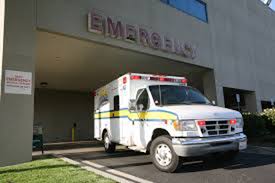The Connecticut (CT) Practice Book compiles all applicable laws, rules, and forms for civil cases in the state of Connecticut. The book covers a wide range of topics, including civil procedure, decisions, evidence, and appeals. The text provides a range of forms for various civil actions, including complaints, answers, motions, and orders.
This book is an invaluable resource for attorneys and judges interested in understanding the history of Connecticut’s legal system.
Important Components of the CT Practice Book
Rules for Professional Conduct
The ethical requirements and standards that Connecticut attorneys must adhere to are outlined in these rules. They address confidentiality, professional accountability, attorney-client interactions, and also conflicts of interest.
Procedure Rules
Rules about criminal, appellate, family, and also probate proceedings are all included in the Practice Book. The procedures, due dates, and prerequisites for pursuing legal actions in state courts are outlined in these regulations.
Court Documents and Filing Requirements
It offers standardized forms and lists the supporting materials needed to file different lawsuits in Connecticut courts.
Judicial Administration
Rules about court proceedings, administrative issues in the court system, and judge appointments are all included in the Practice Book.
Evidence Rules
Ensuring justice and dependability in the presentation of evidence covers the principles controlling the admissibility of evidence in court proceedings.
Important Features of the Connecticut Practice Book
Section 40-11: Prosecuting Authority Disclosure (Amended June 22, 2009, to take effect January 1, 2010)
(a) Upon a defendant’s written request submitted in compliance with Section 41-5, the prosecuting authority, subject to Section 40-40 et seq., shall, at the latest, within 45 days of the request’s filing, unless the judicial authority extends this time for justifiable reasons, disclose in writing the existence of, provide photocopies of, and permit the defendant, in compliance with Section 40-7, to inspect, copy, photograph, and have reasonable tests conducted on any of the following items:
(1) Any books, tangible objects, papers, photographs, or documents under the custody, control, or possession of any governmental body that the prosecuting attorney plans to present as key evidence during the trial, that are necessary for the defense’s preparation, or that were allegedly obtained from the defendant;
(2) Copies of the defendant’s previous criminal history, if any, that the prosecuting authority has in its possession, custody, or control and also whose existence is known to them or may come to their knowledge by the exercise of due diligence;
(3) Also, any expert reports or statements related to the offense charged, such as the outcomes of psychological and physical examinations as well as scientific tests, experiments, or comparisons that are relevant to the defense team’s planning or that the prosecution plans to use as the main piece of evidence during the trial;
(4) Search and seizure warrants are issued during an investigation of an offense and are executed for the defendant’s arrest.
And:
(5) (A) Any written, recorded, or spoken statements about the alleged offense made by the defendant or a codefendant to any law enforcement official, or a person working with or directing a law enforcement officer, before or after arrest. (B) Any pertinent statements made by coconspirators that the prosecuting authority plans to introduce into evidence during any trial or hearing.
(c) In addition to the aforementioned, whether or not a request has been made, the prosecuting authority is required to provide the defendant with any exculpatory information or materials it may possess, in compliance with any applicable constitutional and legislative provisions.
How to Cite Connecticut Practice Book
Headings and sections should be used to relate to individual General Statute provisions. You would also refer to Title 14, Section 219, which is simply stated as “Conn. Gen. Stat.,” if you were talking about a statute regarding speeding.
What is a motion to strike in the CT practice book?
Section 10-39(a)(1) of the Connecticut Practice Book states that if you believe that any allegation or cause of action in the Complaint is not legally sufficient, or that the claim does not meet the requirements necessary for the court to give relief, you may wish to file a Motion to Strike.
FAQs
What are the Connecticut grounds for the motion to dismiss?
A motion to dismiss can be used to argue that there is (1) no jurisdiction over the subject matter, (2) no jurisdiction over the person, (3) there is insufficient process, and (4) there is insufficient process service. Practice Book §10-30(a) Conn. (2022).
What does CT Rule 7.1 mean?
A lawyer is not allowed to communicate inaccurately or deceptively about themselves or their services. If a communication omits information that would make the statement taken as a whole less materially deceptive or contains a material misrepresentation of fact or law, it is false or misleading.
What is the Connecticut Rule 4.2?
According to Rule 4.2 of the Rules of Professional Conduct, an attorney representing a client “shall not, unless with the consent of the other attorney or as permitted by law, communicate about the subject of the representation with a party the attorney knows to be represented by another attorney in the matter.”
In the CT practice book, what is a move to strike?
Section 10-39(a)(1) of the Connecticut Practice Book states that if you believe that any allegation or cause of action in the Complaint is not legally sufficient, or that the claim does not meet the requirements necessary for the court to give relief, you may also wish to file a Motion to Strike.
In conclusion
Section 2-55 of the Practice Book states that written notice of retirement from the practice of law does not mean removal from the bar or attorney roll. A lawyer must not make false or misleading communications about their services, and Rule 4.2 of the Rules of Professional Conduct requires consent from another lawyer or authorization. Finally, evidence of a settlement or compromise offer on a pending claim is not admissible.



